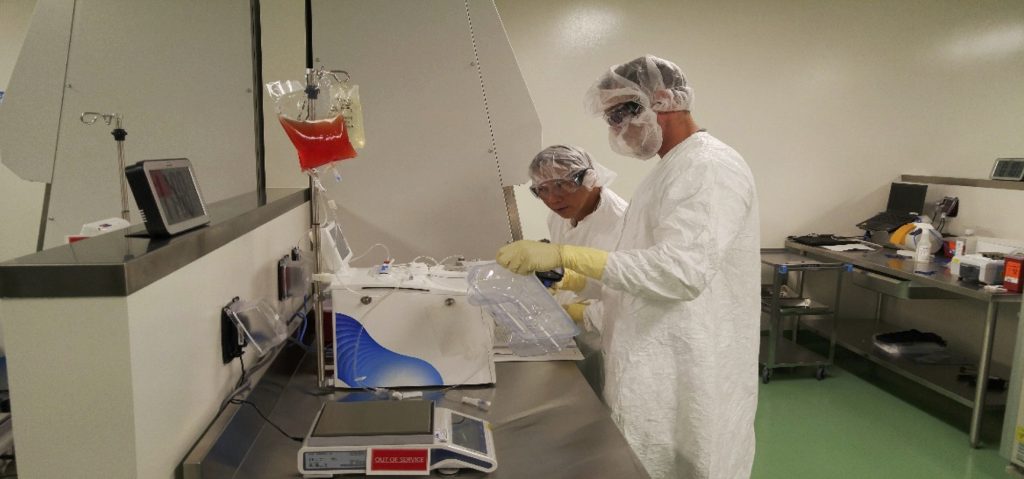A study in Aurora is trying to determine if more cancer patients could benefit from reprogramming their own cells to fight the disease, instead of turning to it as a last resort after other treatments have failed.
Chimeric antigen receptor T cell therapy, also known as CAR-T, is a form of immunotherapy that involves taking cells from the patient’s body and modifying them to target cancerous cells with specific surface proteins. The patient then receives the modified cells via infusion.
At the University of Colorado’s Gates Institute on the Anschutz Medical Campus, a study is examining the use of CAR-T in adult patients with acute lymphocytic leukemia, a type of cancer affecting the blood and bone marrow. The study focuses on patients for whom initial chemotherapy was ineffective or showed a limited response, indicating its potential for long-term efficacy, said executive director Dr. Terry Fry. (The institute is named after rubber manufacturer Charles C. Gates.)
This particular study is assessing safety and is expected to yield initial results next year. Assuming no issues arise, a larger study will investigate whether patients benefit more from CAR-T than from additional rounds of chemotherapy, Fry explained.
When a new cancer therapy carries unknown risks, it is typically administered to patients with no other options, Fry noted. If it proves effective and doesn't cause unacceptable side effects in those whose cancer is resistant to treatment, researchers then explore the possibility of offering it earlier, he added.
“When we see something is successful, we forget that someone had to be that first patient” and take risks, he said.
Patients with the type of leukemia under study at CU generally have two options: chemotherapy or a bone marrow transplant, both of which can be taxing, Fry stated. The advantage of CAR-T, if successful, is that it only needs to be administered once, he noted.
“It can be advantageous to receive a single treatment, move on with their life, and be done with it,” he said.
While no certainty exists, individuals who do not achieve remission after chemotherapy often do not fare much better with another round, so if studies show that administering CAR-T earlier is effective, it could spare them from another ineffective treatment, he said.
“The current (drug) label requires us to force that patient to get another line of treatment so they can relapse, and then we can give them a CAR,” he said.
Immunotherapy has its own risks, including the development of secondary cancers, and a small number of patients have developed lymphoma after undergoing CAR-T treatment for another blood cancer. At present, it seems that developing lymphoma after CAR-T is “extremely rare,” and it is uncertain whether CAR-T or the patients’ previous chemotherapy was the cause, according to Fry. About 3% of patients with one type of blood cancer develop a secondary cancer regardless of receiving CAR-T, he added.
“It’s very rare that a cancer treatment is a free lunch,” he said. “So far, (secondary lymphoma) looks to be extremely, extremely rare.”
T cells are the part of the immune system that kill infected cells. In CAR-T, they are modified to recognize and attack cells with specific proteins on their surfaces. Certain types of leukemia and lymphoma are relatively easy targets for CAR-T, because the type of white blood cell that has become cancerous has a protein that is not located elsewhere in the body, Fry said.
And because people can survive without those cells for a period, as long as they receive antibody drugs to protect them from disease, eliminating healthy cells along with the cancerous ones does not cause much collateral damage.
Developing CAR-T therapies for other cancers has been more challenging, Fry said. To create a CAR-T that worked for solid tumors, they would have to find a protein on the surface of the cancerous cells that was not widely present in the healthy organ around it, and address other challenges that are not a factor with blood cancers, he said.
“I think we’ll eventually figure it out,” he said.









